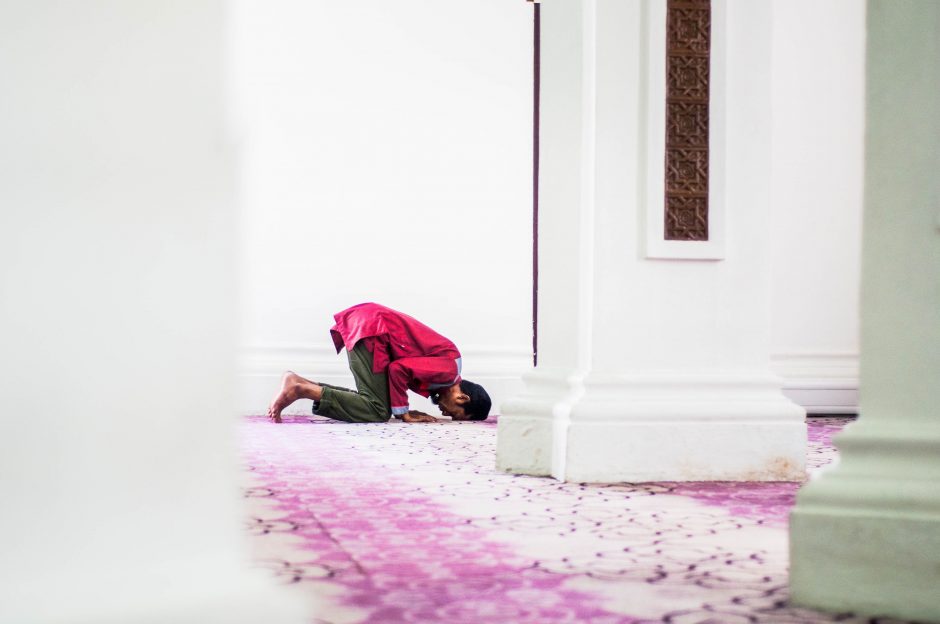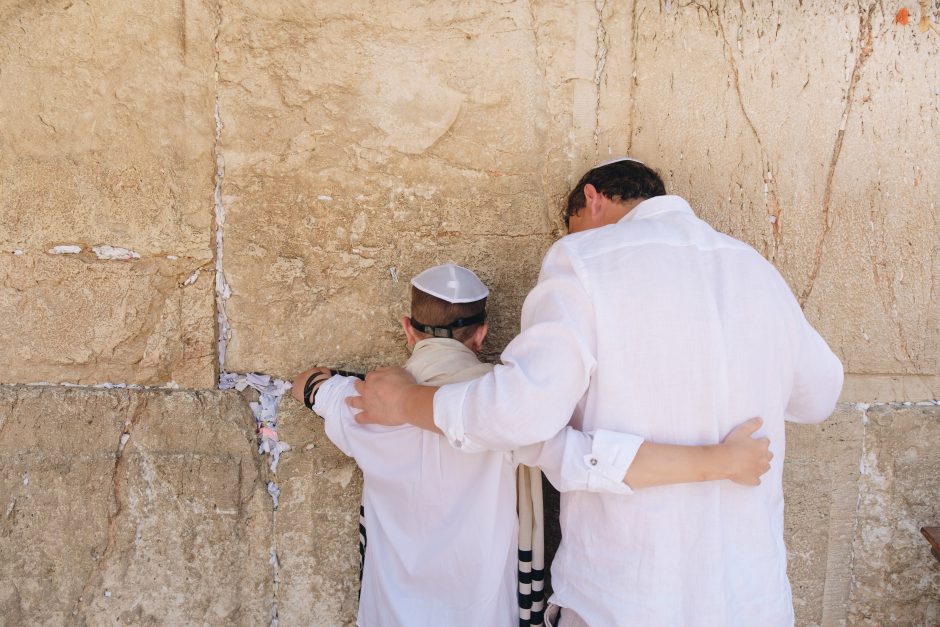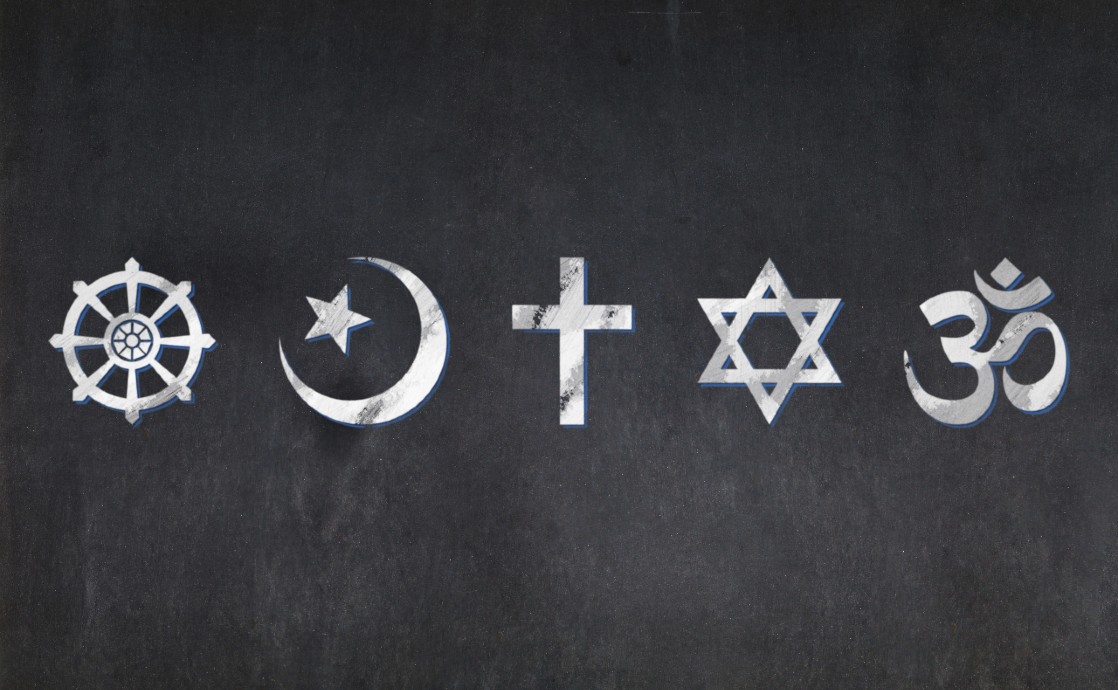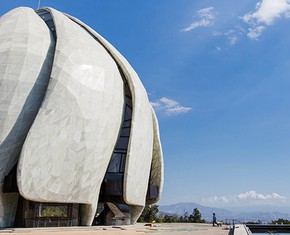The views expressed in our content reflect individual perspectives and do not represent the authoritative views of the Baha'i Faith.
How do we celebrate one another and live together in harmony when we think we don’t even agree on the same God? We can accomplish this by coming together and sharing our human experiences — joy, sorrow, and everything in between — so that we can connect in the spiritual realm. One way I believe this happens is through recognizing interfaith unity.
As a Baha’i, I believe we were created to exist as one human family. In a talk in Paris in 1911, Abdu’l-Baha — the son of Baha’u’llah, the prophet and founder of the Baha’i Faith — explained:
Bahá’u’lláh has drawn the circle of unity, He has made a design for the uniting of all the peoples, and for the gathering of them all under the shelter of the tent of universal unity. This is the work of the Divine Bounty, and we must all strive with heart and soul until we have the reality of unity in our midst, and as we work, so will strength be given unto us. Leave all thought of self and strive only to be obedient and submissive to the Will of God. In this way only shall we become citizens of the Kingdom of God and attain unto life everlasting.
RELATED: Do We All Worship the Same God?
A key part of this is recognizing that all religions come from the same divine source — and that’s one of the interfaith community’s goals. I have been involved in the interfaith community for more than 30 years. I attended college and graduate school in New Orleans and started my professional life there. During that time, I was also a student of world religions. I was on a quest to understand God and how we all related to one another, which led me to the interfaith community. I met spiritual brothers and sisters who, like me, were well versed in our various — Christian, Jewish, Muslim, Hindu, or Native American upbringings. Yet, people in the interfaith community realized that there were other modalities — not other Gods, rather other expressions and ways to understand God and how we were to serve one another in this world.
I attended a variety of religious, community, and academic gatherings where I also met some of the most spiritual, non-theist folks who did not believe in formal religion. We all connected through sharing the joys and heartbreaks of living a human existence. In fact, we revered each other for these shared experiences.

Each of these brave souls served the New Orleans community in some capacity. Despite the cultural, racial, and socio-economic differences, their hearts lived to make that corner of the world a better place for everyone, and all strived to build unity between neighborhoods. Thinking back on it, it reminds me of these words of Baha’u’llah:
“Shut your eyes to estrangement, then fix your gaze upon unity. Cleave tenaciously unto that which will lead to the well-being and tranquility of all mankind. This span of earth is but one homeland and one habitation.”
During the past 30 years before becoming a Baha’i, I taught, built, and directed programs in three churches of different denominations. Two of those church programs focused on early childhood and special education, and the other on dementia care and aging — all in family ministry and spiritual formation). Throw in a dose of nonprofits and service with interfaith councils and creative art boards, and voila — it is why and how I was drawn to and became a Baha’i.
Throughout the years, and for me personally, the families and individuals with whom I shared pivotal emotional experiences all believed in God, in some form or another, and our faith differences did not interfere with that. Because through the joyful and painful times, we met together on the same page. The Baha’i teachings are for me, the culmination of my personal and professional journey, by the grace of God, in building bridges of unity, hospitality, and wholeness through spiritual dialogue.

We are reaching a new understanding, a new age of awakening. As Baha’is, we know this. I would also offer that Christians and people from other faiths understand exactly what is happening as well.
Last December, my city’s Local Spiritual Assembly — a democratically-elected council that administers affairs for a Baha’i community — was reading about us being leavening, and I had literally just read an article where Pope Francis specifically mentioned leavening and how we must navigate this new global world as members of one human family. Conversations I have had with Christian — and otherwise — seeking folks have shown me that the contemplative theology approach is making a resurgence.
It is what we do as Baha’is with the process of self-accountability, meditation after prayer, etc. This grouping of folks follows the Perennial Tradition, which acknowledges all faiths — that God is the main source and that the method of religion is the mutual tether we share to experience God. This shared acknowledgment is the first and most critical step in the teaching of progressive revelation. As Abdu’l-Baha explained:
The greatest bestowal of God in the world of humanity is religion; for assuredly the divine teachings of religion are above all other sources of instruction and development to man. Religion confers upon man eternal life and guides his footsteps in the world of morality. It opens the doors of unending happiness and bestows everlasting honor upon the human kingdom. It has been the basis of all civilization and progress in the history of mankind.
While we will for a time work out differences in semantics and strive to educate and share our core tenet of progressive revelation, the simple act of being present with one another is, I have found, the most critical and powerful step in building interfaith unity. Recognizing one another’s shared emotional experiences requires, yet again, holding our ego in check and simply listening and sharing. The Baha’i writings tell us:
Likewise, when you meet those whose opinions differ from your own, do not turn away your face from them. All are seeking truth, and there are many roads leading thereto. Truth has many aspects, but it remains always and forever one.
Do not allow difference of opinion, or diversity of thought to separate you from your fellowmen, or to be the cause of dispute, hatred and strife in your hearts.
Rather, search diligently for the truth and make all men your friends.
RELATED: Coronaspection: An Interfaith Wisdom Dialogue on COVID-19
The one factor — the common denominator to get us out of our egos and into our robes of humility — is to relish in our human experiences. I cannot tell you how many gatherings I have attended where another person would share with me an experience of how their child was in special education or they cared for their loved one with dementia. Sometimes they shared with laughter and other times with tears of relief that another soul understood their daily challenge and love for their precious one — all beautiful souls from different faiths or non-faiths.

There would be a moment of connection, understanding, and reverence for the courage, fortitude, and perseverance. This would open the conversation to higher things — to God. There we would momentarily reach a new height of awareness and understanding that everything was going to be OK because God is good, and we are not alone in this.
I love Abdu’l-Baha’s talk in Denver in 1912, where he states:
Such a gathering is fundamentally spiritual, sincere, and most important. But we must arise in the accomplishment of its purposes, for our attention is directed toward the heavenly Kingdom unto which we must render faithful service. Therefore, all individuals present here must be in the attitude of perfect love and fellowship, manifesting the utmost humility and self-sacrifice, turning our thoughts toward the Kingdom of God so that our meeting may be an expression of the glorified hosts of the Supreme Concourse.
Amen, right?!
I am still learning and soaking in what it means to be a Baha’i and how I can strengthen my interfaith community and dialogue with my sisters and brothers-from-another-mother. With each prayer, each new understanding of a writing, I realize the ocean wherein Baha’u’llah calls us. It is vast and infinite and is a true sandbox of discovery. Baha’u’llah wrote:
Immerse yourselves in the ocean of My words, that ye may unravel its secrets, and discover all the pearls of wisdom that lie hid in its depths. Take heed that ye do not vacillate in your determination to embrace the truth of this Cause–a Cause through which the potentialities of the might of God have been revealed, and His sovereignty established. With faces beaming with joy, hasten ye unto Him. This is the changeless Faith of God, eternal in the past, eternal in the future. Let him that seeketh, attain it; and as to him that hath refused to seek it–verily, God is Self-Sufficient, above any need of His creatures.
In the meantime, I am trying each day to exemplify a few additional and wise words from Abdu’l-Baha’s talk mentioned above:
The world of humanity is filled with darkness; you are its radiant candles. It is very poor; you must be the treasury of the Kingdom. It is exceedingly debased; you must be the cause of its exaltation. It is bereft of divine graces; you must give it impetus and spiritual quickening. According to the teachings of Bahá’u’lláh you must love and cherish each individual member of humanity.
My goal is to keep this on the front of my mind and heart, as I encounter those in the world around me.
















Comments
Sign in or create an account
Continue with Googleor